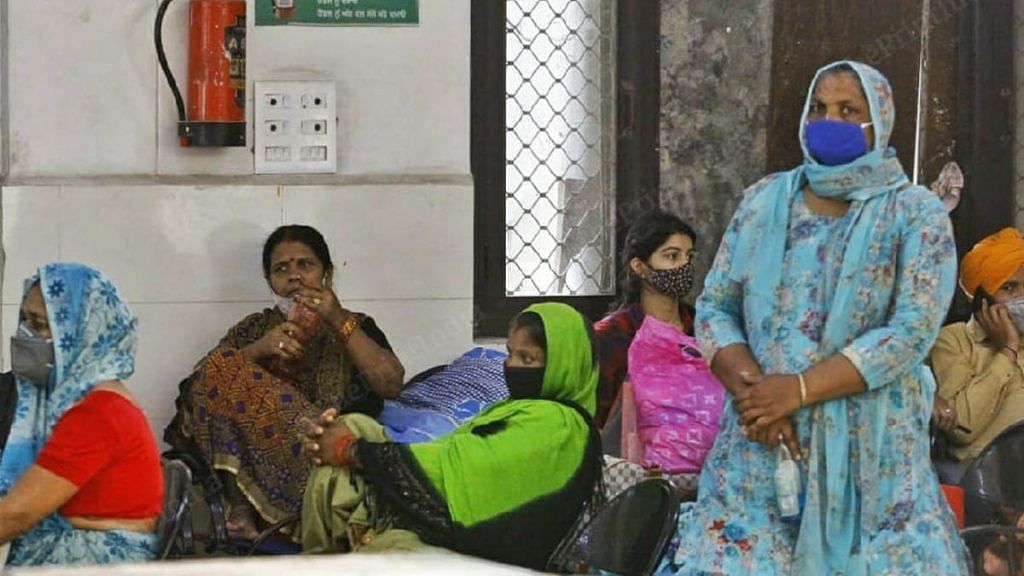New Delhi: The quest to control the spread of SARS-CoV-2 and finding a viable treatment for the infection continues, with scientists across the world engaged in research.
Meanwhile, Covid-19 continues to devastate countries with over 3.6 crore cases and more than 10 lakh deaths recorded globally till date.
Here are some of the latest scientific findings around Covid-19.
Pregnant women may experience Covid symptoms for months
A significant number of Covid-positive pregnant women can experience prolonged symptoms, sometimes lasting two months or longer, a study has found.
For the study published in the journal Obstetrics & Gynecology, researchers analysed 594 women who tested positive for SARS-CoV-2 during pregnancy.
Most common early symptoms for pregnant women were cough, sore throat, body aches, and fever. Half of the participants still had symptoms three weeks after their diagnosis and 25 per cent had symptoms after eight weeks.
While previous research on SARS-CoV-2 infection in pregnancy has primarily centred on hospitalised patients, the new analysis focused on ambulatory patients — those who do not require hospitalisation.
The researchers found several common symptoms of Covid-19, but the symptoms were complicated by overlapping symptoms of normal pregnancy, including nausea, fatigue and congestion.
Also read: Govt panel rejects Dr Reddy’s proposal to test Russian vaccine Sputnik V in Phase III trial
Exposure to pollution may have made Covid more deadly
Long-term exposure to urban air pollution may have made Covid-19 more deadly, according to a new study.
The researchers from Emory University analysed key urban air pollutants, including fine particulate matter (PM2.5), nitrogen dioxide (NO2), and ozone (O3), across 3,122 counties in the US from January to July.
The study, published in The Innovation journal, looked at the link between ambient air pollutants and the severity of the Covid-19 infection. The team looked at the case fatality rate — the number of deaths among the people who are diagnosed with Covid — and the mortality rate, which measures the number of Covid deaths in the population.
Of the pollutants analysed, NO2 had the strongest independent correlation that raised a person’s susceptibility to death from Covid. A 4.6 parts per billion increase of NO2 in the air was associated with 11.3 per cent and 16.2 per cent increase in Covid case fatality rate and mortality rate, respectively.
A reduction in long-term exposure to NO2 would have prevented 14,672 deaths among those who tested positive for the virus. The team also found a a marginally significant link between PM2.5 exposure and Covid case fatality rate.
Wearing masks can cut Covid-19 spread by 25% per week
Wearing a mask can reduce the weekly spread of Covid-19 by at least 25 per cent, a new study by researchers from Simon Fraser University (SFU), Canada, reveals.
The study, which is yet to be peer-reviewed, concludes that mandating indoor masks early July could have reduced the weekly number of new cases in the country by 25 to 40 per cent in mid-August, which translates into 700 to 1,100 fewer cases per week.
The study analysed the impact of mask mandates that were implemented across Ontario’s 34 Public Health Units (PHUs) over the course of two months.
Researchers found that in the first few weeks after their introduction, mask mandates led to an average weekly reduction of 25 to 31 per cent in newly diagnosed Covid-19 cases, when compared to the absence of these mandates in July and August.
The study also found that relaxed restrictions on businesses and gatherings led to a growth in Covid cases — a factor that could offset and obscure the health benefits of mask mandates.
The most stringent restrictions on businesses and gatherings, observed in the data, were associated with a weekly decrease of 48 to 57 per cent in new cases.
Hepatitis drug sofosbuvir could be more effective than remdesivir
Sofosbuvir — a drug used to treat hepatitis C — is likely to be more effective in preventing viral replication in Covid-19 patients than remdesivir, a new study suggests.
The study, published in the Scientific Reports journal, suggests that sofosbuvir, in combination with other drugs, should be evaluated in Covid-19 clinical trials.
The team showed that the sofosbuvir is able to stop the ‘proofreading’ capability of SARS-CoV-2 better than remdesivir. This proofreader capability maintains the accuracy of viral RNA genome replication to sustain virulence of the infection.
Any effective antiviral must, therefore, display a certain level of resistance to this proofreading activity.
The team had suggested in January, before the Covid-19 pandemic was declared, that sofosbuvir might inhibit SARS-CoV-2, based on the study of molecular structures and activities of hepatitis C viral inhibitors and a comparison of hepatitis C virus with coronavirus replication.
Clinical trials with a number of hepatitis C drugs such as sofosbuvir are going on in several countries.
Also read: Festive season warning — 4 states saw massive Covid surge after Ganesh Chaturthi, Onam
